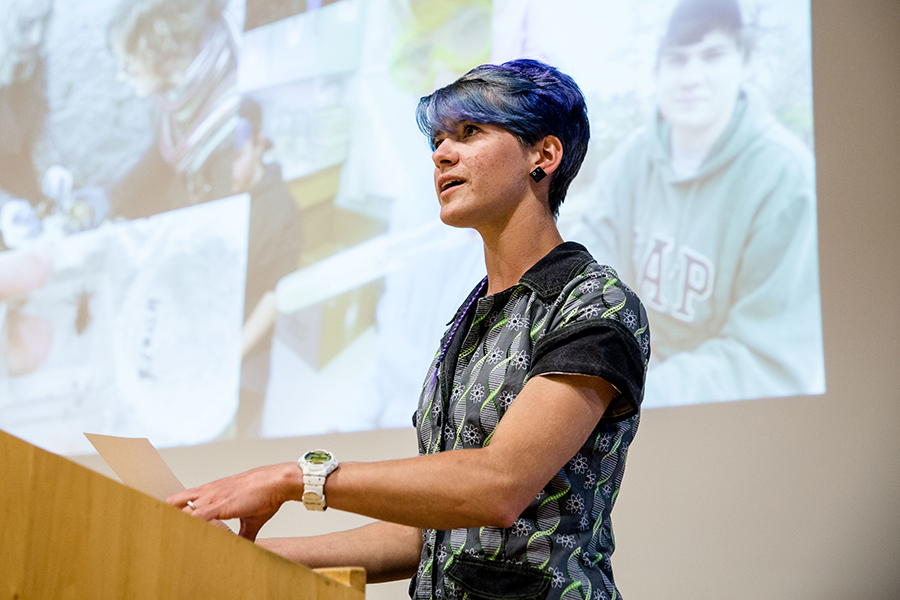About Communication
Developing good communication skills is one of the fundamental goals of an Evergreen education. Writing and speaking are emphasized across the curriculum through multiple writing formats, small seminars, collaborative projects, and class presentations.
At Evergreen, you can learn about interpersonal, intercultural, organizational, and mass communication in tandem with studies in:
- Psychology
- Leadership
- Global societies
- Conflict management
- Business
- Political economy
- Media arts
If you want to practice media-based communication skills, you'll have access to state-of-the-art sound recording and television studios, a thriving student-run newspaper, and an on-campus community radio station.
Communication is inherently interdisciplinary and can lead to careers in public relations, media production, education, human resources, marketing, and management.
Check out related Courses and Programs in the Academic Catalog
